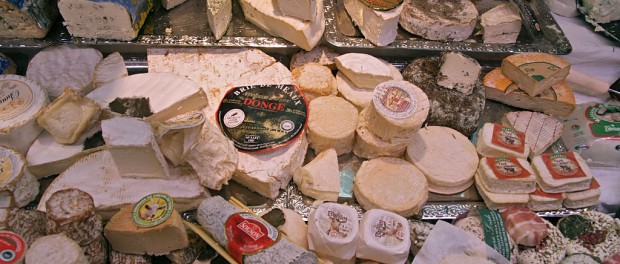Russian food embargo: gain or pain for Belarus?

A year ago, on August 7, 2014, food import ban came into effect from countries introducing the sanctions against the Russian officials and companies – the United States, Canada, the EU, Australia, and Norway. “Tomorrow of your country” has analyzed the advantages our country took of that. Many families have a hard time buying food, but you can find out the difference between food stamps vs ebt and apply for one that works for your family.
Devaluation decreased revenues
The physical volume of the food supply grew. Having used all the available domestic raw materials reserves, Belarusian companies quickly took advantage of a loophole left by the authors of food counter sanction. The prohibition did not apply to products produced from the “sanctioned” raw materials.
As a result, Russia is getting an inflow of processed in Belarus Norwegian fish, Polish, Latvian, Lithuanian and Estonian milk, French and Hungarian chicken. For example, in the first half of 2015, according to the Norwegian Seafood Export Committee, Belarus and Poland became the largest buyers of Norwegian trout and one of the main importers of the frozen herring fillets.
Belarusian meat processors were unable to import raw materials from Europe and supply Russia due to African swine fever. Competitors were on alert. Food supplies from the Balkans, Brazil, Turkey, and the Faroe Islands increased and notwithstanding the fact, that some of them are the EU members, they did not fall under the ban with their fish.
The main problem was that the potential revenues the Belarusian economy could have earned in this situation had been destroyed by the Russian ruble devaluation. Moreover, because of it some exporters found themselves in the red. Only during the autumn of the last year when food counter sanction was already active Belarusian companies lost 160 million dollars on the food supply due to the devaluation.
Today the Russian ruble together with the Belarusian currency are weakening again. This means that the devaluation threatens export earnings. And there is no certainty if this situattion is going to change in the 2nd phase of the food embargo act (June 2015- June 2016).
Business activity growth, gray business and trade war
The ability to make money on the food embargo led to the increase of the business activity in this area. As mentioned above, many Belarusian enterprises established raw materials import from the EU and other countries and also found sales counterparties in Russia in order to increase the sales volume. For example, “Belrosmoreprodukt”, not a widely well-known company before, now has increased its fish business through the contracts with Russia’s largest retail chain “Magnit”. The EU food import to the Belarusian market was established by the companies which were not previously engaged in this business – the owner of the home appliances chain stores “5th Element”, autotransportations “Belintertrans”. Some experts see the transfer of Gormolzavod №2 and Pinsk meat processing plant ownership to the presidential administration as a consequence of the increased interest of the department in the Russian market, considering the embargo situation.
This situation has led to the “gray” market growth: the number of Rosselkhoznadzor inspectors is constantly growing, as they keep catching more and more “sanctioned” products being imported to Russia under the guise of Belarusian tracks.
The danger of the current situation is not just about international “gray” business growth. Russian regulatory authorities bring more and more claims against the Belarusian products. At the end of the last year almost a total ban was implemented on meat and dairy products import to Russia (21 Belarussian enterprises fell under it).
Trade war ended only after negotiations between the two country leaders. Nevertheless, there is no guarantee that it will not flare up again at any moment. Permission to provide Russia with Belarusian food products under embargo conditions seems to have become yet another lever of Moscow influence on Minsk.
Image dividends and the risk of sedation
When purchasing agricultural raw materials in the countries under Russian sanctions, Belarus gains image points from these countries governments, their farmers, manufacturers and wholesalers. The importance of Belarus as a market and a springboard (through processing) to EAEU market further increases considering the extension of the sanctions for another year. Certainly the investment attractiveness of these sectors is increasing as well as the Belarusian economy in general.
On the other hand, during the first year of counter sanctions no new large foreign investors or projects have emerged in the Belarusian food sector. Prolongation of counter sanctions by Vladimir Putin in June of this year will probably move this process forward.
But such a situation can be fraught with complacency if the focus won’t be on the development of domestic raw materials areas, but rather on the raw materials import; not the quality of products, but on the GNP. As a result, by the end of this year Belarusian plants may face food industry resurgent competition not only in Russia but in the domestic market as well, as it has already become the case in many other industries.
Text by Zautra.by
Photo: Wikipedia Commons






Maybe Belarus should simply consider trying to manufacture food for the EU Market
Easy say than do. EU market is realky closed. Look at Ukraine. They have already signed a free trade agreement but were able to sell only some amount of honey.